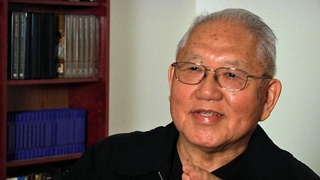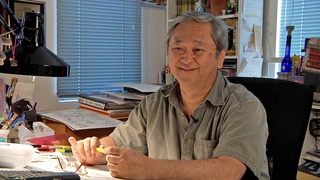Interviews
Ring name: "Yamato Damashi"
And I’m also flattered the my nickname is “Yamato Damashi,” which means “Japanese spirit.” Lot of people portrayed it as a samurai spirit because it was a word that was used back in the Edo-jidai, which is the samurai days. And it is a very, very great word, subarashi word. [It’s] almost a word so good that I feel like I’m not doing the word justice, me equaling yamato damashi. So to me, they not only took me under, they slammed me—I didn’t choose that word. I didn’t pick that word. I didn’t even know what the word meant at first. But the mass komi (mass communication), the press, are the ones who slammed me with that word, saying that you equal yamato damashi. You have more yamato damashi than Japanese people themselves. And there’s some articles that say that “Enson is more Japanese than Japanese,” which is really flattering for me.
Date: October 14, 2003
Location: Saitama, Japan
Interviewer: Art Nomura
Contributed by: Art Nomura, Finding Home.
Explore More Videos

His clothes are part of his identity
(b. 1981) Enka Singer

Hopes everyone pursues their dreams regardless of race or heritage
(b. 1981) Enka Singer

Considers Pittsburg his home, but always wanted to live in Japan
(b. 1981) Enka Singer


The first concert in the United States (Japanese)
(b. 1981) Enka Singer










